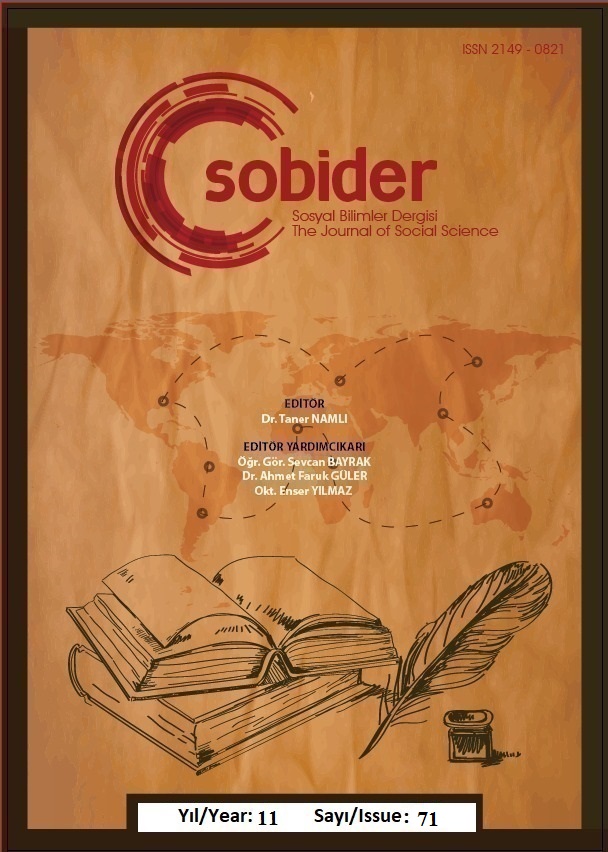Author :
Abstract
Bu çalışmamızda İmam Bûsırî’nin (ö. 695/1296) tüm İslam dünyasında ve Türk dünyasında büyük ilgi görmüş ve üzerine şerh ve haşiye gibi çok sayıda çeşitli çalışmalar yapılmış olan Kasîde-i Bürde’si üzerine yazılmış şerhlerden biri olan Muhammed b. Mustafa el-Mudurnî’nin Verdetü’l-Melîh fî Şerhi Bürdeti’l-Medîh’inde takip edilen usûl/metot üzerinde durduk. Müellif, eserini dilbilim çerçevesinde değerlendirebileceğimiz sarf, nahiv, lügat, belagat ilimleri eksenine oturtarak ibarenin doğru anlaşılmasına yoğunlaşırken, İslami ilimlerin tefsir, hadis, kelam, tasavvuf, siyer ve mantık gibi alanlarından da yararlanarak eserini daha kıymetli hale getirmiştir. Eserin müellifi Mudurnî, 18. yüzyılın ilk yarısında Osmanlı medreselerinde talebe yetiştirmiş, İbn Hacer el-Askalânî’nin (ö. 852/1449) Nüzhetü’n-nazar fî tavzihi Nuhbeti’l-Fiker adlı eserine hacimli sayılabilecek bir şerh yazmış, fıkhî risalelerinin yanı sıra kelime-i tevhid hakkında da eseri olan bir Osmanlı âlimidir. Eserleri üzerine şu ana kadar müstakil hiçbir çalışma yapılmamış olması makalemizi daha önemli hale getirmektedir.
Keywords
Abstract
In this study, we will use the commentaries written on Imam Bûsırî's (d. 695/1296) Kasıde Burde, which has gained a well-deserved reputation throughout the Islamic world and attracted great attention in the Turkish world, and on which many various studies such as commentaries and annotations have been made. One of them, Muhammad b. of Mustafa el-Mudurnî's Verdetü'l-Meliḥ fî Şarh Bürdeti'l-Medîh which we focused on the procedure/method of this work. While the author concentrated on the correct understanding of the phrase by placing his work on the axis of the sciences of grammar, syntax, dictionary and rhetoric, which can be evaluated within the framework of linguistics, he also made his work more valuable by benefiting from the fields of Islamic sciences such as tafsir, hadith, kalam, Sufism, sirah and logic. The author of the work, Mudurnî, trained students in Ottoman madrasahs in the first half of the 18th century, wrote a voluminous commentary on the work of Ibn Hacer al-Askalânî (d. 852/1449) called Nüzhetü'n-nazar fî tavzihi Nuhbeti'l-Fiker, and wrote a review of fiqh treatises. He is also an Ottoman scholar who has works on the Kalima Tawhid. The fact that no independent study has been conducted on his works so far makes our article more important.





